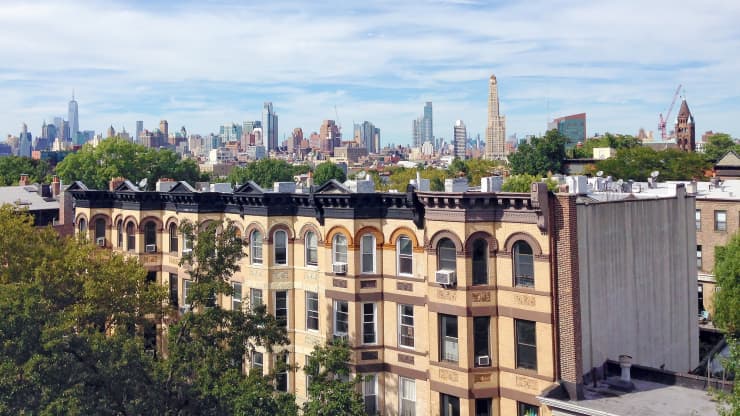Rent should not exceed 30% of your salary, according to personal finance experts. But for many young professionals in cities today, that’s a tall order.

As housing costs continue to rise, millions of Americans pay more than 30% of their income on rent. A one-bedroom apartment in Boston, for example, costs an average of $2,930 a month. It costs $3,360 in San Francisco. Even some Facebook software engineers complain they can’t afford to pay their rent.
I get it as a 26-year-old professional living in New York, where the typical one-bedroom apartment costs $3,680 per month.
In fact, after college, I lived at home for four years to save money while deciding what I wanted to do with my profession, and I saved roughly $47,000 in the process.
On move-in day, I stood in front of my fifth-floor walk-up apartment.
When it came time to move into my place, locating rent that didn’t break the bank was quite tough. I finally found an affordable apartment after two months of hunting. It was a fifth-floor walk-up with a shared toilet and no oven, but it was adequate.
Here are my top advice for locating an apartment on a budget, based on my own experience:
Understand your deal breakers.
You’re unlikely to have your one-bedroom apartment. However, just because you’re on a tight budget doesn’t mean you have to sacrifice your quality of life.
Take a moment to consider what you want and what you can’t stand.
Here’s my list of topics to think about:
Time spent commuting
Whether the residence is a smoking or non-smoking environment
What are your thoughts on pets?
The distance between the nearest subway or bus stop
If you wish to live in a calm or vibrant neighborhood,
If you require a stove, oven, dishwasher, elevator, or on-site laundry, don’t hesitate to contact us.
What qualities do you seek in a roommate?
How do you feel about overnight visitors?
Consider whether or not you can afford to hire a real estate broker.
If you’re on a tight budget, you probably won’t be able to. Brokers in big cities typically charge between 10% and 15% of the annual leasing rate. That’s between $1,440 and $2,160 for a $1,200 unit. If you can’t afford a broker, look for postings that include phrases like “no broker” or “no cost.”
Get real estate applications.
Download apps like Craigslist, StreetEasy, Trulia, and Zillow to stay updated on the listings. Checking them regularly is a convenient method to cast a wide net because each has different postings. Take use of any perks that the app provides to people who create an account, such as store searches or keeping track of your favorite listings. Your search will be much more straightforward.
Enable notifications as well. You’ll be notified whenever a new listing that meets your criteria is added, when thousands of other people are looking for locations, even answering minutes before others can make a big impact.
Stop wasting time hunting for a studio.
In a city like New York, finding a cheap studio apartment is exceedingly difficult, if not impossible.
If you do discover one, it nearly always has a huge catch: it will be the size of a closet, or it will not have its bathroom. If you have roommates with whom to share an apartment, you greatly expand your options.
